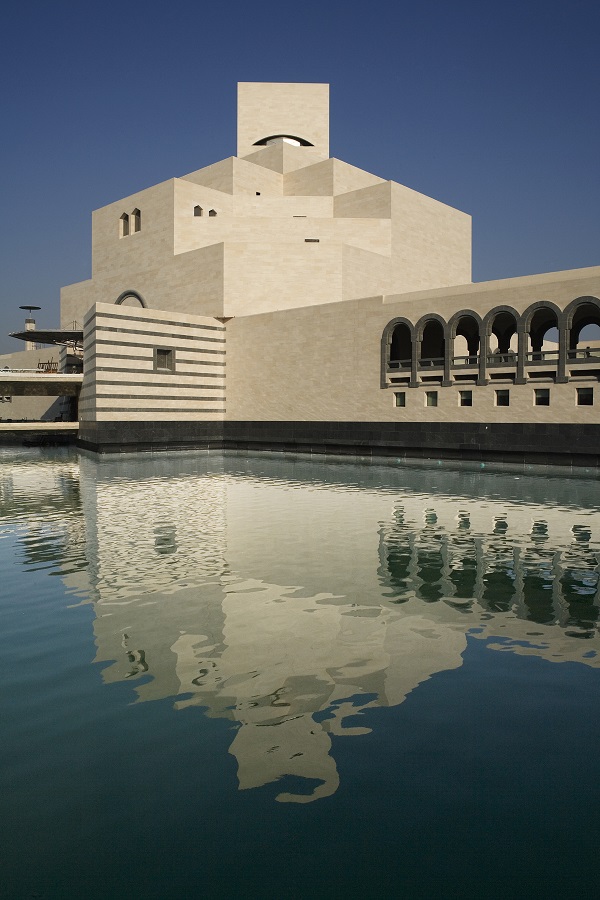DUBAI: Designed by famed Chinese American architect I.M. Pei, Qatar’s Museum of Islamic Art is reopening on Oct. 5 after an extensive revamp — just in time for the FIFA World Cup, scheduled to kick off in November.
The museum, which opened in 2008, has been closed since April 2021. Its reopening features a reinstallation of its permanent collection galleries, reconfigured according “to broad historical and cultural themes, periods and geography,” and will explore “the great traditions of Islamic craftsmanship,” said officials. Another attraction lies in the over 1,000 objects, including many newly acquired and never-before-seen works of art.

(Supplied)
“The relaunch involves a full rehang of its permanent galleries, a significant step that reimagines the collection in its entirety,” Julia Gonnella, who became director of the museum in 2017, told Arab News.
There will also be a new section on Islam in Southeast Asia and an exploration of the relationship between different cultures through exhibitions highlighting the trade of commodities and the exchange of ideas across the Islamic world and the globe.
Shortly after its reopening, the museum will inaugurate “Baghdad: Eye’s Delight” (Oct. 26-Feb. 23), the temporary exhibition that introduces and celebrates one of the world’s most influential cities, looking at its heritage as the capital of the great Abbasid caliphs (750-1258) and its legacy in the 20th century, when the city again became a thriving center for the arts, culture, and commerce.
Gonnella stressed that this exhibition is “not merely a celebration of the glorious Abbasid Baghdad.”
“While the glory of the Abbasids waned, the city remained of great importance and the spirit of its heritage is prevalent in present Baghdad,” she told Arab News. “Despite the wars, destruction and hardships the city had to endure since its foundation, echoes of the Abbasid legacy are still heard. For this reason, the exhibition will introduce Abbasid Baghdad in parallel to Baghdad of the 20th century, focusing especially on the period between the 1940s and 1970s when the city once again became an economically and culturally thriving place with intense urban planning, architectural developments, art movements and important developments in the education sector.”
Highlights in the exhibition include artifacts from the Abbasid period (remnants of Abbasid palaces such as doors, textiles and gold armlets) as well as objects of trade (textiles and glass ceramics) and precious manuscripts, such as important copies of the Qur’an and scientific treatises. Also featuring, Gonnella said, will be modern artworks, including from Dia Azzawi and Sadiq Al-Fareej, and paintings from the Modern Baghdad Group, including from Jewad Salim and photographs of Latif Al-Ani.
Among the main new attractions is the newly restored 19th-century Damascus Room, which highlights facets of Ottoman life. It took three years to re-assemble and conserve.
“One of the highlights of the museum’s revamp is the elaborate wooden interior of the Damascus Room,” said Gonnella. “We included this beautifully newly restored 19th-century interior not only as a fascinating piece for everyone to look at but also as it reflects so well the great importance people in the Arab world place on hospitality, receiving guests, drinking coffee and tea together —an important part of Islamic culture.”
The reopening of the museum is part of Qatar Creates, a year-round national movement that aims to celebrate the diversity of cultural activities in the country.












